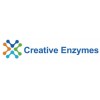Cat No.
NATE-0667
Description
Sorbitol dehydrogenase (or SDH) is a cytosolic enzyme. In humans this protein is encoded by the SORD gene. Sorbitol dehydrogenase is an enzyme in carbohydrate metabolism converting sorbitol, the sugar alcohol form of glucose, into fructose. Together with aldose reductase, it provides a way for the body to produce fructose from glucose without using ATP. Sorbitol dehydrogenase uses NAD+ as a cofactor; its reaction is sorbitol + NAD+--> fructose + NADH + H+. A zinc ion is also involved in catalysis. Organs that use it most frequently include the liver and seminal vesicle; it is found in all kinds of organisms from bacteria to humans. A secondary use is the metabolism of dietary sorbitol, though sorbitol is known not to be absorbed as well in the intestine as its related compounds glucose and fructose, and is usually found in quite small amounts in the diet (except when used as an artificial sweetener).
Abbr
SDH, Native (Rat)
Alias
SDH
Source
Rat Liver
Species
Rat
Form
Lyophilized
Enzyme Commission Number
EC 1.1.1.14
Bio-activity
Reported in U/mg
CAS No.
9028-21-1
Purification
Purified
Unit Definition
One unit will catalyze the conversion of one micromole of D-fructose and NADH to D-sorbitol and NAD per minute at 37°C and pH 7.6.
Gene Name
Sord sorbitol dehydrogenase [Rattus norvegicus]
Synonyms
Sorbitol Dehydrogenase; SDH; EC 1.1.1.14; 9028-21-1; L-iditol 2-dehydrogenase; polyol dehydrogenase; sorbitol dehydrogenase; L-iditol:NAD+ 5-oxidoreductase; L-iditol (sorbitol) dehydrogenase; glucitol dehydrogenase; L-iditol:NAD+ oxidoreductase; NAD+-dependent sorbitol dehydrogenase; NAD+-sorbitol dehydrogenase
GeneID
24788
mRNA Refseq
NM_017052
Protein Refseq
NP_058748
UniProt ID
P27867
Chromosome Location
3q35
Pathway
Fructose and mannose metabolism, organism-specific biosystem; Glucuronate pathway (uronate pathway), organism-specific biosystem; Pentose and glucuronate interconversions, conserved biosystem
Function
L-iditol 2-dehydrogenase activity; NAD binding; identical protein binding





